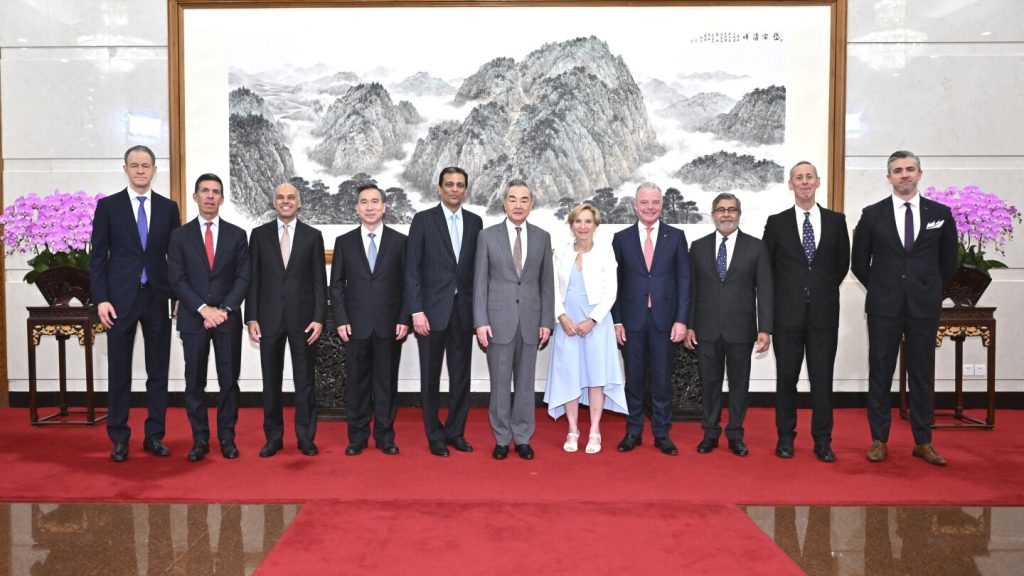Top U.S. executives from companies like FedEx and Micron visited Beijing this week and were warned by Chinese officials about the potential harm higher tariffs on imports from China could have on their businesses in the country. Despite efforts by the Biden administration to improve ties with China, sanctions imposed by former President Donald Trump, including punitive tariffs on Beijing, have largely been left in place. The Treasury Department has also proposed a rule to restrict and monitor U.S. investments in China for artificial intelligence, computer chips, and quantum computing.
Chinese Commerce Minister Wang Wentao emphasized to the U.S. delegation that investment restrictions from the U.S. will significantly impact American companies’ investments and operations in China. The U.S. China Business Council, representing over 270 American companies doing business in China, stated that the visit to Beijing was aimed at advancing economic and policy priorities and supporting dialogue between the two countries’ government and business leaders. The council’s chairman and FedEx CEO Raj Subramaniam expressed appreciation for the opportunity to engage with Chinese leaders to promote commercial relations.
During the meeting, the group discussed building a stable, fair, and predictable business environment in China, addressing barriers to the Chinese market, and improving the relationship between the two economies. Foreign Minister Wang Yi encouraged the delegation to provide an accurate and objective understanding of China through their influence and connections. The Communist Party’s recent planning meetings endorsed over 300 reform measures to strengthen China’s economic power and leadership in advanced technologies, while also emphasizing the importance of national security safeguards.
The Chinese government’s regulations to implement a revised state secrets law raise concerns among foreign business groups, as they fear tighter restrictions on the handling of data and potential raids by authorities on foreign businesses in China. Uncertainty and concern have been expressed by businesses regarding the ambiguity around where the boundaries lie in terms of China’s state secrets laws. With the need to collect information for investments while ensuring compliance with regulations, companies are navigating challenges in understanding and adhering to China’s evolving laws and regulations.
Ultimately, the U.S. executives’ visit to Beijing highlights the complexities and challenges faced by American companies operating in China amidst evolving trade policies, national security concerns, and regulatory changes. As both countries navigate their relationship and economic ties, businesses must adapt to a shifting landscape while balancing competitiveness, compliance, and the need for cooperation and dialogue between government and industry leaders of both nations. The outcome of these interactions will shape the future of U.S.-China business relations and impact the global economic landscape.


